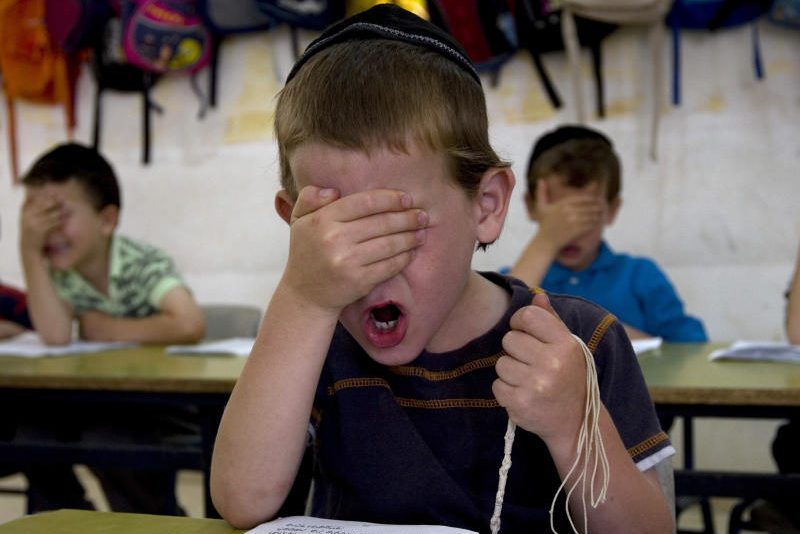There is a dispute between Rashi and the Rambam in how to understand the pasuk of Shema Yisrael.
Rashi understands the pasuk as a request for the entire world to come to recognize Hashem as The One G-d. Adding some insights of others, what we are saying is:
Shema Yisrael: Hear, understand, and accept – all of klal Yisrael in unity…
Hashem Elokeinu: The Hashem Who today is “our G-d” because primarily only we recognize Him as the One G-d Who oversees and controls every aspect of the world and of my personal life…
Hashem Echad: Here we are requesting of Hashem that He bring about the time when the whole world will recognize that Hashem is One, as we do now.
Rambam understands the pasuk to mean that we are affirming to ourselves (and internalizing) that Hashem is One as stated above. Ein od milvado – all that happens in the world and all that happens in our lives, sweet and bitter – all is from Hashem.
HaRav Soloveitchik then suggests that for the evening Shema, in Maariv, we think along the lines of the Rambam, and during the morning Shema we think like Rashi.
We begin our day at night. Before we can request that Hashem enlighten all the nations of the world, we need to reaffirm Hashem as King over ourselves. HaRav Yerucham Levovitz points out that it is much more difficult to proclaim Hashem as King over ourselves than to ask Hashem to allow the entire world to recognize Him. When we have to make a decision, do we decide based on what we want to do, or do we ask ourselves (and our rav/rebbe, when needed) what do I think Hashem wants me to do?
Only after we reaffirm and commit ourselves during the evening Shema, do we then make our request in the morning for the entire world, in accordance with Rashi’s understanding.
HaRav Soloveitchik adds that we see that in the birchos Shema at night, in Maariv, there are no requests at all. In contrast, in the birchos Shema in Shacharis, there are many requests. Therefore, it fits beautifully that our request comes only in the morning Shema.
The essence of Rosh HaShanah is, in fact, exactly these two understandings of Shema: first, accepting Hashem’s Kingship over myself. We must first thank Hashem for the role we played this past year in His Malchus. We must truly appreciate all He has granted to us. Then we should express our yearning to play an even bigger role this year. The degree to which we truly pine to come closer to Hashem, to learn His Torah and do His Will, to emulate His midos (not merely performing acts of compassion and chesed, but actually becoming people of compassion and chesed, etc.), the more Hashem will, in fact, allow us to have an even greater role in the future, b’ezras Hashem. Rosh HaShanah is about our desire and about our commitment.
The next step is yearning for Hashem to bring the time soon in our days when the entire world will recognize Hashem as we do.
May we all be blessed with a k’sivah v’chasimah tovah and all we need spiritually, emotionally, and physically to take on an even greater role in Hashem’s Malchus.
(based on reshumos shiurim on Maseches B’rachos from HaRav Yosef Dov Soloveitchik zt”l)

